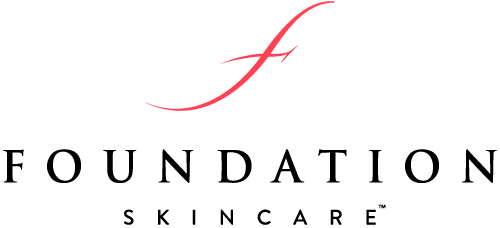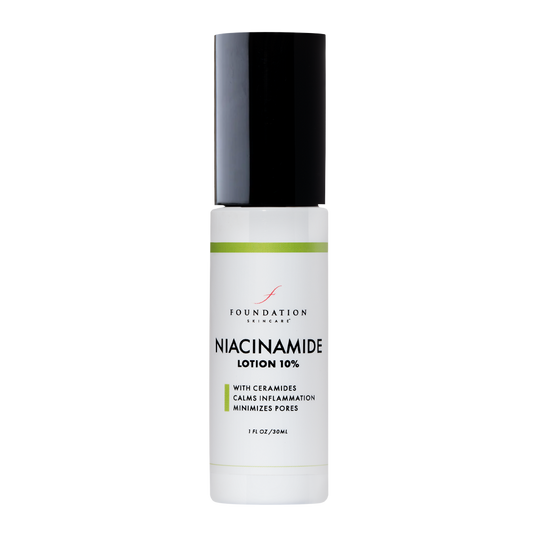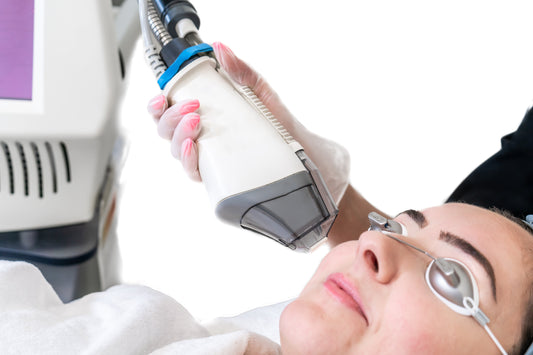When it comes to accessing quality skincare products with high concentrations of active ingredients like azelaic acid and retinol, many people see their dermatologists for a prescription. But “medical-grade” products with high concentrations are just as effective and can now be obtained over the counter.
Dr. Anthony Nuara, MD PhD FAAD is here to break down the benefits of “medical-grade” skincare, and why these products are more effective than most OTC alternatives.
What is Medical-Grade Skincare?
Medical-grade skincare products are made with higher concentrations of active ingredients to rival prescription products. These products target specific medical conditions and areas of concern, such as acne, rosacea, or hyperpigmentation. Many OTC skincare products contain low concentrations of active ingredients to be suitable for all skin types and avoid having to seek FDA approval. Medical-grade skincare products do not require FDA approval, but products should be tested for purity, labeled appropriately, and meet rigorous United States Pharmacopeia (USP) standards.
Ingredients & Formulation
As stated above, active ingredients in medical-grade products have higher concentrations than most OTC alternatives. This makes them more potent, but because their concentrations are still not as high as prescription skincare products, they also tend to carry fewer side effects.
In addition to having a higher concentration of the active ingredients, medical-grade skincare products also have the purest form of those ingredients. While some OTC skincare products fail to penetrate the epidermis, medical-grade products are designed to reach the deepest layers of the skin. Such products should be backed by research and formulated by medical professionals, including board-certified dermatologists and pharmacists.
Dermatologist-Recommended Skincare
In the past, highly-concentrated medical-grade products were only available with a prescription. But access has improved with a number of these high-quality products now being available to all.
Foundation Skincare products are formulated by a board-certified dermatologist, a chemist and a pharmacist with expertise in formulations and compounding. Each raw ingredient has been painstakingly sourced and verified by science to not just ensure the highest quality and efficacy without a prescription, but also to ensure the product is gentle enough for all skin types. Read on to find out more about how our medical-grade products compare to OTC products, how we ensure safety and quality assurance, and which products will address your specific skin concerns.
Product Customization & Personalization
When you visit a dermatologist, you can expect to leave with a personalized plan based on your specific needs. Most over-the-counter skincare brands leave it up to the consumer to diagnose their condition and figure out the best treatment plan for their concerns without personalized guidance along the way.
While Foundation Skincare does not customize products based on each customer, our collection is comprehensive enough to cover most skin issues, whether you’re hoping to slow the signs of premature aging or prevent acne breakouts. At the same time, our approach is designed to address skincare needs from the inside out with topical products and targeted supplements. All the products in the Foundation Skincare collection are also formulated to layer well with each other so that you can build a skincare regimen that meets your specific needs.
If you are ever unsure about what product to use, you can contact our Customer Support team for guidance.
Niacinamide Lotion 10%
• Helps retain moisture and elasticity
• Reduces inflammation & redness
Over-the-Counter vs Medical-Grade Skincare
To understand how medical-grade skincare compares to a standard over-the-counter product, consider our in-depth analysis of Foundation Skincare’s Azelaic Acid 14% Cream and The Ordinary Azelaic Acid 10% Suspension.
Both products aim to reduce acne and hyperpigmentation, but Foundation Skincare’s Azelaic Acid Cream contains a medical-grade concentration of 14%. This is crucial, as prescription products contain 15-20% of the active ingredient, and most research studies revolve around this higher concentration. It’s important to note that some people may be sensitive to a concentration of 20%, and experience dryness or irritation. FS Azelaic Acid 14% is potent enough to make a significant improvement in the skin’s condition without the higher risk of irritation. Even more, it contains soothing ingredients like aloe leaf juice and jojoba seed oil, which help to reduce inflammation.
In fact, FS Azelaic Acid 14% is so gentle, it can easily be layered with other products in the Foundation Skincare collection. If you’re fighting acne, you might want to pair this product with other medical-grade products like FS Niacinamide Lotion 10%, which balances sebum (oil production) to help control and prevent acne. If your main concern is hyperpigmentation, you may want to layer with FS Vitamin C Lotion 20%, another medical-grade formulation, which helps to block the action of an enzyme called tyrosinase to fade brown spots and acne scars.
The Ordinary Azelaic Acid 10% Suspension, on the other hand, should not be layered with products containing niacinamide, peptides, direct acids, or retinoids according to the manufacturers. The product is also silicone heavy, which may interfere with its ability to properly penetrate the skin.
Safety & Quality Assurance
In addition to being formulated by a board-certified dermatologist and pharmacist, Foundation Skincare products have been rigorously tested to ensure safety and efficacy. All Foundation Skincare products are made and filled in state-of-the-art GMP certified facilities in San Diego, California, in accordance with USP standards. And all products contain long standing proven ingredients that have been carefully sourced.
How to Choose Medical-Grade Skincare
Accessing medical-grade skincare is not as difficult as it used to be. To help you choose, look for dermatologist-formulated products with science-backed ingredients in concentrations that match or nearly match pharmaceutical products. Check to see if these ingredients are carefully sourced for purity and quality assurance and formulated in GMP certified facilities. All medical-grade products in the Foundation Skincare collection contain ingredients backed by clinical research:
- FS Azelaic Acid 14% Cream: Uses a clinically-proven ingredient shown to reduce post-inflammatory hyperpigmentation and acne1
- FS Vitamin C Lotion 20%: Brightens skin while increasing collagen production as shown in numerous studies2
- FS Niacinamide Lotion 10%: Verified to control acne, fade hyperpigmentation, and increase ceramides for improved skin texture 3
- FS Hyaluronic Acid Lotion: A powerful humectant proven to draws moisture in to plump skin and restore elasticity while helping to repair the skin barrier4
- FS Night Renewal Cream with 2% Granactive Retinoid: Contains essential peptide growth factors and plant-based botanicals which have been shown to effectively visibly reduce the appearance of fine lines, wrinkles, dark spots, and sagging skin while accelerating cellular turnover5
- FS Firming Neck Cream: Contains palmitoyl pentapeptide-4, which provides retinoid-like results, with less irritation6
Whether you are struggling with acne, premature aging, or hyperpigmentation, medical-grade skincare products offer a compelling alternative to prescription products. Explore more research on Foundation Skincare’s products and medical-grade skincare in the FS Journal.
References:
-
https://pubmed.ncbi.nlm.nih.gov/21637899/
-
https://www.ncbi.nlm.nih.gov/pmc/articles/PMC3673383/
-
https://www.ncbi.nlm.nih.gov/pmc/articles/PMC3142702/
-
https://onlinelibrary.wiley.com/doi/10.1111/dth.15903
-
https://www.jaad.org/article/S0190-9622(18)31012-0/fulltext
-
https://www.ncbi.nlm.nih.gov/pmc/articles/PMC7716741/






